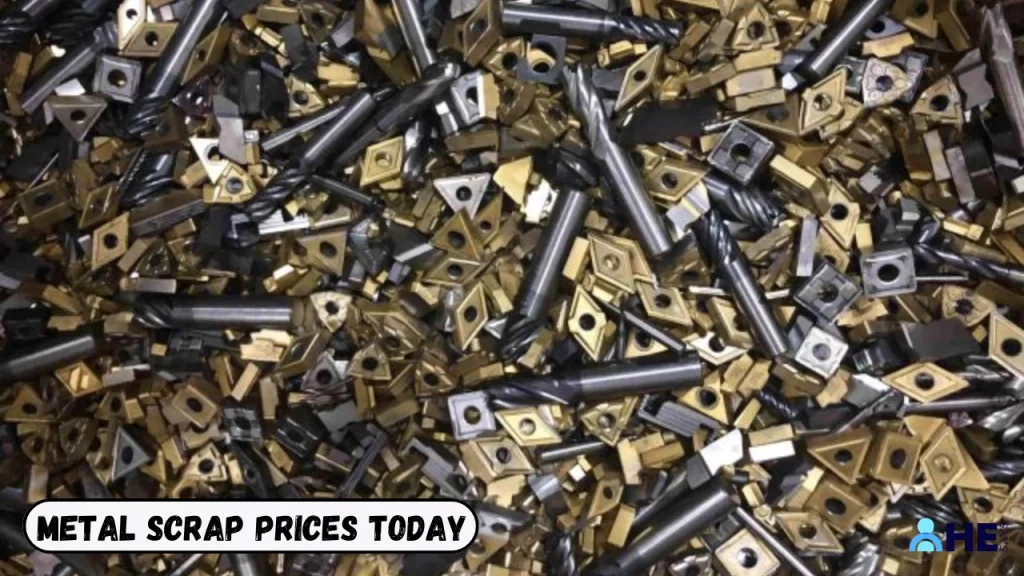Metal Scrap Rate in Pakistan | Trends, Prices, & Predictions
Metal scrap rate in Pakistan today ranges between Rs. 180 and Rs. 185 per kg, reflecting the dynamic nature of this industry. These prices fluctuate due to factors like regional demand, transportation costs, and economic conditions, making it crucial for buyers and sellers to stay updated to seize the best opportunities.
Understanding metal scrap rates is vital for making informed decisions in industries like construction and manufacturing. It helps businesses manage costs, forecast budgets, and ensure profitability while promoting sustainability by encouraging recycling and efficient resource use.
Current Metal Scrap Rate in Pakistan
Metal scrap rates in Pakistan are influenced by a variety of factors, including regional demand, supply dynamics, and market conditions. These rates can vary significantly across cities, reflecting local economic activities and transportation costs, making it essential for stakeholders to monitor them closely.
| Item Name | Price per KG |
|---|---|
| Brass | RS. 1640-1650 |
| Pepsi Dabba | RS. 510-515 |
| Battery | RS. 300-305 |
| Hard Silver | RS. 585-590 |
| Max Steel | RS. 180-185 |
| Compressor | RS. 370-375 |
| Copper | RS. 2400-2410 |
Also Read: Steel Price Today in Pakistan
Factors Influencing Metal Scrap Rate in Pakistan
Several interconnected factors play a pivotal role in determining metal scrap rates, making the market dynamic and unpredictable.
Global Market Trends
The global demand for metals heavily influences local scrap prices. Fluctuations in international metal markets, driven by industrial growth or slowdowns, directly impact the rates in Pakistan.
Recycling Rates
Higher recycling rates can stabilize scrap prices by ensuring a steady supply. When recycling efforts increase, it reduces reliance on raw materials, which can help control market volatility.
Seasonal Variations
Metal scrap rates often fluctuate with the seasons due to changes in industrial activity. For example, construction and manufacturing slowdowns in winter can reduce demand, impacting prices.
Economic Conditions
Economic factors like inflation, currency devaluation, and fuel costs significantly affect scrap rates. These conditions can raise transportation and operational costs, influencing market dynamics.
Local Supply and Demand
The balance of local supply and demand greatly impacts scrap prices. Regions with higher industrial activity may experience increased demand, driving up rates, while areas with ample supply may see lower prices.

Trends in the Metal Scrap Industry
The metal scrap industry in Pakistan is evolving rapidly, with increasing adoption of modern recycling technologies. These innovations are improving efficiency and reducing waste, making the industry more sustainable and eco-friendly.
Another significant trend is the growing demand for high-quality recycled metals in manufacturing. This shift highlights the importance of metal scrap as a valuable resource, driving both local and international trade opportunities.
Challenges in the Metal Scrap Industry
- Inconsistent Quality Standards: Variations in scrap quality lead to inefficiencies in processing and impact pricing stability.
- Inadequate Recycling Infrastructure: Limited recycling facilities hinder the industry’s ability to process scrap efficiently and sustainably.
- Fluctuating Market Prices: Unpredictable price swings make it difficult for businesses to plan and maintain profitability.
- Economic Instability: Economic factors such as inflation and currency devaluation create uncertainty, affecting supply and demand.
- Lack of Awareness: Limited awareness about the importance of metal recycling impacts overall participation in scrap collection and processing.
Predictions for Metal Scrap Rates
As the demand for recycled metals continues to rise globally, experts predict that metal scrap rates in Pakistan will experience gradual increases over the next few years. Several factors, including technological advancements in recycling and shifting global market trends, are expected to drive these changes.
- Global Demand Growth: Increased industrialization in emerging markets and the shift toward sustainable practices are likely to push global scrap prices higher, reflected in local rates.
- Improved Recycling Infrastructure: As Pakistan invests in better recycling facilities, the supply of quality scrap may stabilize, helping to balance price fluctuations.
- Economic Factors: Domestic economic growth, along with factors like inflation or currency strength, will continue to influence price trends in the short and long term.
Also Read: TR Gardar Rate in Pakistan Today
Conclusion of Metal Scrap Rate
The metal scrap industry in Pakistan is influenced by various factors, from global market trends to local supply and demand. Understanding these dynamics is crucial for both buyers and sellers to navigate the fluctuations in rates effectively. As the industry continues to evolve, staying informed about these trends will help stakeholders make strategic decisions and adapt to future challenges.






